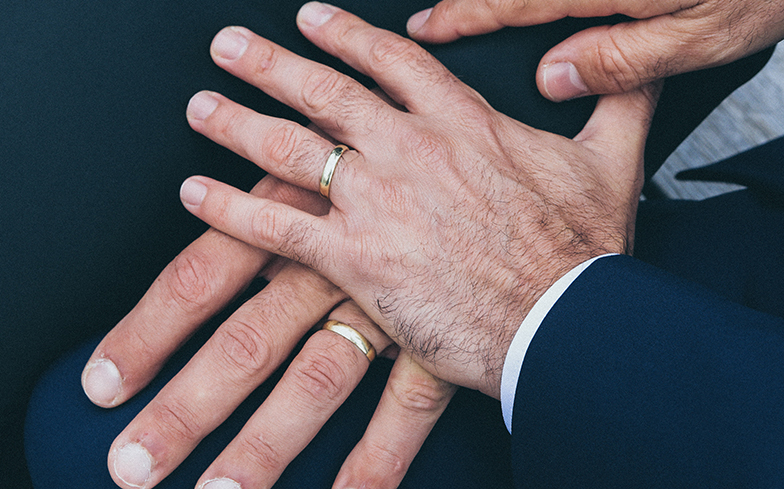
In early February, Bermuda became the first country to repeal same-sex marriage nine months after it was legalised.
The island nation and North Atlantic British Overseas Territory’s Supreme Court legalised same-sex marriage last year with a landmark ruling, after it deemed a ban on such a union a discriminatory violation of human rights.
However, earlier this month Governor John Rankin signed a bill replacing the legislation with The Domestic Partnership Act, which will allow gay and straight couples to form domestic partnerships in the government’s attempt at offering “equal rights”.
Same-sex couples who wed since last May will not have their marriage annulled.
It came after religious leaders and thousands of people on the small island – which is home to a population of 60,000 – protested the Supreme Court’s decision.
The reversal of marriage equality has now sparked fears that other nations could follow suit.
“This could open the door to undo marriage equality elsewhere,” said Jordan Sousa, founder of Bermuda’s Gay Straight Alliance told NBC.
The decision has caused Bermudian Joe Gibbons and his Canadian partner to make plans to move to Canada.
“One of the reasons we are leaving is the complete ambiguity of how the rights of same-sex couples will be guaranteed,” Gibbons said.
“There is just a feeling that people are against you.”
Meanwhile, gay Bermudian man Rod Ferguson has launched a legal challenge against the nation’s decision to re-ban same-sex marriage.

Rainbow Alliance of Bermuda
“I rejoiced when Bermuda finally established the right for same-sex couples to marry in 2017 and I had planned to exercise that right someday, but then it was taken away through the passage of the Domestic Partnerships Act,” Ferguson said.
“I strongly believe that this is a fundamental human rights issue, that everyone is entitled to the same protection of law which includes the service of a contractual marriage in Bermuda.
“When the rest of the right-thinking world has accepted the position that marriage should be available to same-sex and opposite-sex couples alike, it is very disappointing that my own country has effectively moved backwards.
“I am grateful for what so many others have done to contribute to Bermuda’s movement toward marriage equality, and I’m privileged to be in a position, with the support of family, friends, and the LGBT community, where I can now stand up and do my part.
“I have taken the decision to make this legal application to protect my rights along with the rights of so many of my fellow Bermudians.”
Same-sex marriage has so far been legalised in 26 nations since the Netherlands became the very first country to put it into law back in 2001.
The US, UK, Germany, France, South Africa and Australia are just a handful of the places where marriage equality has been passed.
Austria and Taiwan are expected to follow later this year after court rulings in 2017.
As for Bermuda, they have stated that their decision to repeal same-sex marriages doesn’t mean that LGBTQ tourists aren’t welcome to the island.
However, there have been a number of cancellations amongst LGBTQ travellers since the re-ban.
“Individual travellers can vote with their feet,” said Kevin Dallas, head of the independent Bermuda Tourism Authority.



